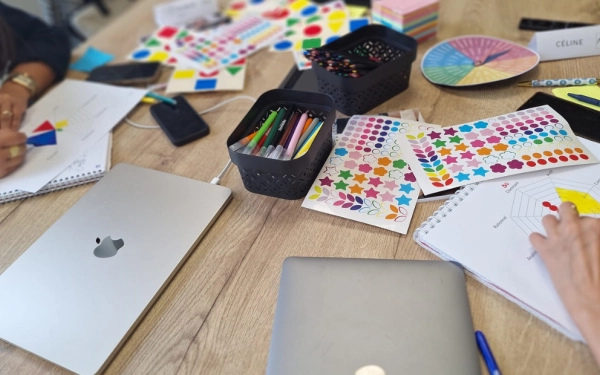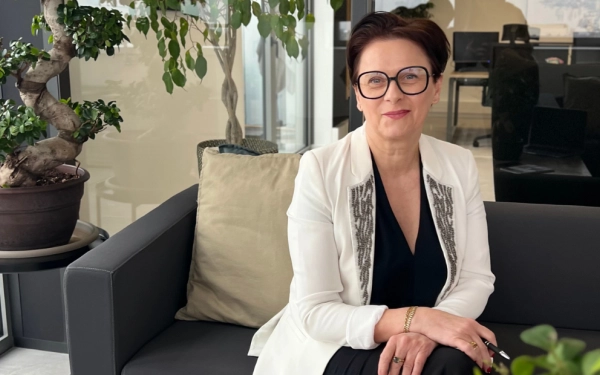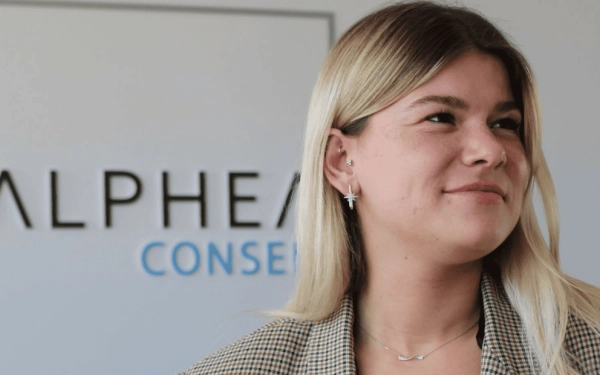9 interview questions for HRD candidates

Having often taken on the role of recruiter, the candidate for the HRD position knows the ins and outs of the recruitment process. However, when it's his or her turn, he or she must also play the company's game and prepare for the interview so as to personalize his or her answers. Indeed, this is a crucial choice for thefuture talent management and, in this circumstance, the company generally deploys aparticularly demanding recruitment process .
HR trends, Recruiter Innovation, key figures related to recruitment... Alphéa Conseil previews all the latest news!Follow us on LinkedIn |
Here are the most frequently asked interview questions.
|
Tell us about yourself!
Generally speaking, you don't become an HRD overnight. It requires strong experience in the field and proven skills. That's why it's essential to detail your career path.
This question allows you to develop your various experiences, with particular emphasis on the most rewarding and on the missions carried out that have a link with the target position. This not only highlights your skills, but also shows that you can see yourself in the company. What's more, try to establish links between each experience so that the recruiter understands the logic behind your career evolution, and the reasons why you changed jobs at each stage. He needs to be reassured about your commitment.
What is your management style?
It's a question of assessing how the HRM will manage teams and his preferred methods of communication. Top-down or bottom-up communication? Participative, delegative, directive management?
There isn't just onemanagement style, nor one ideal style. An HRD needs to be able to delegate to get staff involved, but also to make firm decisions, particularly in the event of disciplinary action, and to manage conflict. So illustrate your answer with telling examples, such as implementing an organizational change, or negotiating an agreement with the unions.
The way you speak also tells a lot about your vision and your own qualities. The recruiter needs to know about your work personality. Will you be a control-freak HRD? Are you rigorous? Will you be flexible and adaptable in your interprofessional relationships? Don't forget that you'll be representing the company both internally and externally.
What's the most difficult professional situation you've encountered?
What matters with this question is the analysis carried out by the candidate, as well as the means implemented in an attempt to solve the problem. The aim is not to check that a solution has been found, but rather to let the person talk about their feelings and observe their critical thinking. In addition, what may have been difficult for you at a given moment may not be so for the person you're talking to. If possible, choose your examples by associating them with skills you'll be called upon to use in your future functions. |
Describe one of your success stories.
This is the counterpart to the previous question. It provides information on theability to analyze a situation, to solve a problem, as well as on responsiveness and the taking of appropriate initiatives. In addition, this question shows how you self-assess your skills. Are you able to take a step back from your practices?
|
|
Also read:
These 10 LinkedIn practices that annoy recruitersInclusion and diversity at the heart of Alphéa Conseil's strategy
|
|
What would be your first actions if we selected you as a candidate?

Where do you see yourself in five years?
Here too, the recruiter assesses the candidate's ability to project himself on the job and within the company. Although in terms of career development, the possibilities are limited for an HRD, you could consider expanding your own department in a few years' time, or even taking theleadership of a more important division, for example. The way you project yourself leads your interviewer to project themselves with you and, at the same time, they assess your abilities to innovate and to help employees and/or the company evolve. |
What are your strengths and areas for improvement?
In this highly exposed profession, it's vital to emphasize your soft skills, because on a daily basis you'll be required to maintain human relations with the players around you and adapt to each one: employees, management, unions, partners, competitors, institutions.
Limit yourself to one or two non-redhibitory flaws, such as impatience, being stubborn, but not too stubborn... but justifying them with examples. "I'm impatient, because I like things to move quickly", "I'm quite stubborn because I'm demanding and willful, but I also know how to admit when I'm wrong".
What are your salary expectations?
Do you have any questions?
The recruiter hands you a perch to verify that you're interested in the company and the position. This is the time to recap what you know and glean any information you may not have gathered: relationships with other managers or Codir members, certain missions specific to the position, the company's development prospects, work organization etc.
This may also be useful for the next interview which, as HRD, you will probably be called to.
A word from our France and International HR Director, Rachida TATA
|
If you aspire to an HRD position, it's because thanks to your previous experience, you've understood the complexity of the human and want to provide an answer to the problems encountered. One thing's for sure, this is a passionate profession for which the Human is at the heart of your daily life! Over and above the job opportunity that's opening up for you, I believe it's essential to find yourself and share the same values as the company for which you're applying as HRD. Even before you take up your post, it's vital to understandthe brand's DNA and its long-term vision. In fact, as soon as you take up your post, you'll become a ambassador of the brand, both to employees and external stakeholders (customers, partners...). |
Do you want to improve your skills? Are you looking for a new challenge?
Contact our team of experts |




